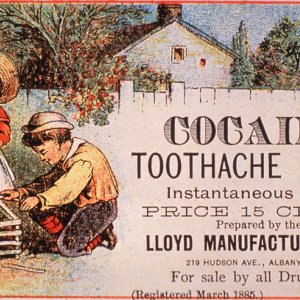Unhappy Americans &
An “Epidemic of Addiction”

A March 21st edition in the Washington Post caught my eye for its leading article by Allyson Chiu. The article was titled, “Americans Are The Unhappiest They’ve Ever Been, U.N. Report Finds.” An interesting topic certainly, but what really caught my eye was the subheading: “An ’Epidemic of Addictions’ Could be to Blame.” Now that had my attention.
The article focused on the International Day of Happiness, which is March 20th. The Day recognizes the importance of the World Happiness Report—a special project created by Jayme Illien, a CEO, philanthropist, statesman, and special advisor to the United Nations.
Every year, the World Happiness Report gauges the overall happiness levels of the residents of all 156 participating nations. For the second year in a row, Finland made first place for being the happiest country in the world. But from 2018 to 2019, the United States dropped in rank to 19th place—one spot lower than where it had been in 2018.
How Is a Country’s Happiness Determined?
The Sustainable Development Solutions Network is a U.N. initiative based in the U.S. which measures and studies socioeconomic issues around the globe. Anything which could influence a nation’s happiness is examined. That information is compiled, analyzed, assessed, and then condensed into the World Happiness Report.
The metrics used to measure happiness are as follows:
- Gross domestic product per capita
- Social support
- Healthy life expectancy among residents
- The freedom to make life choices
- Generosity
- Freedom from corruption
One might think that the U.S. would do well in those areas. But in some of those areas, the U.S. is so lacking that 18 other counties have soared ahead of us. And it’s getting worse, too. The U.S. is now at its worst ranking since the World Happiness Report began in 2012. And the U.S. has never made it into the top 10, but it has dropped in ranking several times.
A Confusing Problem
By all accounts, the U.S. should be happier. Income per capita has seen steady growth with few interruptions, the job sector has experienced more or less consistent growth, violent crime is down, and so on. Yet the U.S. continues to fall in happiness ratings.

I for one can think of a few reasons why happiness levels might be faltering. And as I continued to read the Washington Post article, my suspicions were confirmed. The United Nations research discussed how the U.S. “Epidemic of Addictions” was one of the primary reasons why happiness ratings were continuing to falter among Americans. Some of the items mentioned specifically were:
- Illicit drug use
- Heavy drinking
- Pharmaceutical drug misuse
- Gambling
- Food addiction and other eating disorders
- Excessive use of social media
- Risky, compulsive sexual behaviors
The excessive consumption and indulging in such habits and trends is a sure way to drop happiness levels.
“The compulsive pursuit of substance abuse and addictive behaviors is causing severe unhappiness. Government, business, and communities should use these indicators to set new policies aimed at overcoming these sources of unhappiness.”
According to Dr. Jeffrey Sachs, the director of the Sustainable Development Solutions Network and co-author of the report, “This year’s report provides sobering evidence of how addictions are causing considerable unhappiness and depression in the U.S. The compulsive pursuit of substance abuse and addictive behaviors is causing severe unhappiness. Government, business, and communities should use these indicators to set new policies aimed at overcoming these sources of unhappiness.”
I couldn’t agree more with Dr. Sachs. The addiction problem is one thing, but then the addiction problem leads to other crises, such as obesity for food addicts, drug overdose deaths for drug addicts, lifetime diseases for sex addicts, financial ruin for gamblers, and so on. Addiction by itself is just one part of a problem, but it spreads its roots far and wide and creates other issues.
And the result? A sweeping reduction in happiness among the American people.
Looking for a Solution

The report furnished by the Sustainable Development Solutions Network and the overall story as published by the World Happiness Report gives us much to think about. If our country is seemingly “so well off” but our citizenry are miserable, then what’s the point?
Jeffery Sachs is an economist, author, and professor at Columbia University. He stressed the importance of governments and their citizens finding an opportunity to “Rethink public policies as well as individual life choices, to raise happiness and well-being. We keep chasing economic growth as the holy grail, but it’s not bringing well-being for our country. We should stop our addiction to GDP growth as our sole or primary indicator of how we’re doing.”
I for one see the drug and alcohol addiction crisis as being the most prominent of the emergencies discussed in the report. I tend to lean this way mainly because, of all the various habits and dependencies that our nation struggles with, drug and alcohol addiction is the one that is most likely to take the addict’s life. The other addictions are indeed harmful, but they are not as likely to be so lethal, so quickly.
To me, the solution is simple. All we have to do is reverse the trends of growth in these “bad habits." And that’s easier said than done, indeed. But for those who suffer from drug and alcohol addiction, they are an unhappy lot, and they need help.
If you are seeking help for yourself or a loved one who is struggling with an addiction, the next step is to find and contact a qualified, residential drug and alcohol addiction treatment center. Such a center offers the best shot anyone has at overcoming a drug habit and finally finding the way to freedom and abstinence from addiction.
Sources:
Reviewed and Edited by Claire Pinelli, ICAADC, CCS, LADC, RAS, MCAP


 ®
®